
Anilao is a wonderful tropical paradise. With its lovely sunlit streets, pretty pastel houses, and breathtaking dive sites, this is a haven you will fall instantly in love with. Located just two to three hours from Manila, at the southwestern tip of Luzon, Anilao is easily accessible by car – or by bus, for those who want to have the “Pinoy experience”. Bristling with dive sites and populated with hundreds of dive resorts, Anilao has a well-earned reputation as one of the Philippines’ most popular dive destinations.
In September, I had the privilege of experiencing my first taste of scuba diving, with Anilao as my base. I was to be certified by PADI, the world’s leading scuba diver training organisation, at Casa Escondida, a PADI 5-star Instructor Development Centre (IDC).
In my home country of Singapore, you rarely come across someone who has even been scuba diving, let alone passionate about it. Despite being an island, the people of this bustling city state seem to have a certain detachment from their surrounded waters. It wasn’t until I attended the Philippine Dive Expo (PHIDEX), from September 20 to 22, that I had the opportunity to interact with seasoned divers and listen to their stories, and get to know more about the joys and technicalities of scuba diving.
TAKING THE FIRST PLUNGE
Hearing about the thrill of diving from enthusiastic divers is one thing, but trying it yourself is something else entirely. I have to admit that I began my training with some apprehension, which is probably normal for any new diver. Fortunately, the first few sessions were conducted in a swimming pool, around five metres deep, so my nervousness was tempered by the knowledge that there was a short ascent in case I got into trouble.
After the intensive first day’s training, I was utterly exhausted and slept very well that night.
Diese Geschichte stammt aus der Issue 03 - 2019-Ausgabe von Asian Diver.
Starten Sie Ihre 7-tägige kostenlose Testversion von Magzter GOLD, um auf Tausende kuratierte Premium-Storys sowie über 8.000 Zeitschriften und Zeitungen zuzugreifen.
Bereits Abonnent ? Anmelden
Diese Geschichte stammt aus der Issue 03 - 2019-Ausgabe von Asian Diver.
Starten Sie Ihre 7-tägige kostenlose Testversion von Magzter GOLD, um auf Tausende kuratierte Premium-Storys sowie über 8.000 Zeitschriften und Zeitungen zuzugreifen.
Bereits Abonnent? Anmelden
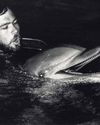
The Sea Specialist: An Interview With Bret Gilliam
Most people learn to crawl before they walk, but there is a man who learned to swim before taking his first steps. Diver, entrepreneur, writer, athlete, maritime specialist – Bret Gilliam is the complete package. Just add water.
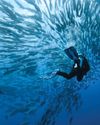
The Best Of Diving In Southeast Asia: Explore The Amazon Of The Seas
Southeast Asia encompasses the world’s most biodiverse reefs and some of the best diving anywhere on the planet. From the tiniest and rarest critters to huge fish schools and the biggest pelagics, the region has it all, and there’s something to suit divers of any level.
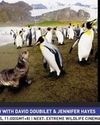
Below With David Doubilet & Jennifer Hayes
Best known for their work with National Geographic, David Doubilet and Jennifer Hayes came together to discuss their work with the youth, and, as Jennifer put it, “submerging with the emerging talent”.
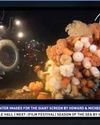
Underwater Images For The Giant Screen
Howard and Michele Hall are best known for their success in underwater IMAX filmmaking.
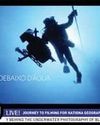
Journey To Filming For National Geographic Wild Brazil
Cristian is an acclaimed and highly versatile Brazilian wildlife filmmaker who works both underwater and topside.
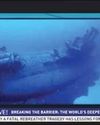
Breaking The Barrier: The World's Deepest Dive
David Strike shared a brilliant presentation about the history of deep diving and how Lt. George Wookey achieved the world’s deepest dive in 1956 using a surface-supplied rebreather.
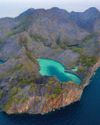
Dive the Golden Land
The Best of Diving In Southeast Asia

OFFICIAL LAUNCH OF BLUE HOPE
Top Session of the Week (14,319 (Views) / 42,831 (Reach)
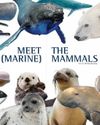
MEET THE (MARINE) MAMMALS
MEET THE (MARINE) MAMMALS
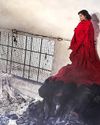
Fashion Faux Pas
What can be done to mitigate the impact of the garment industry on our oceans?